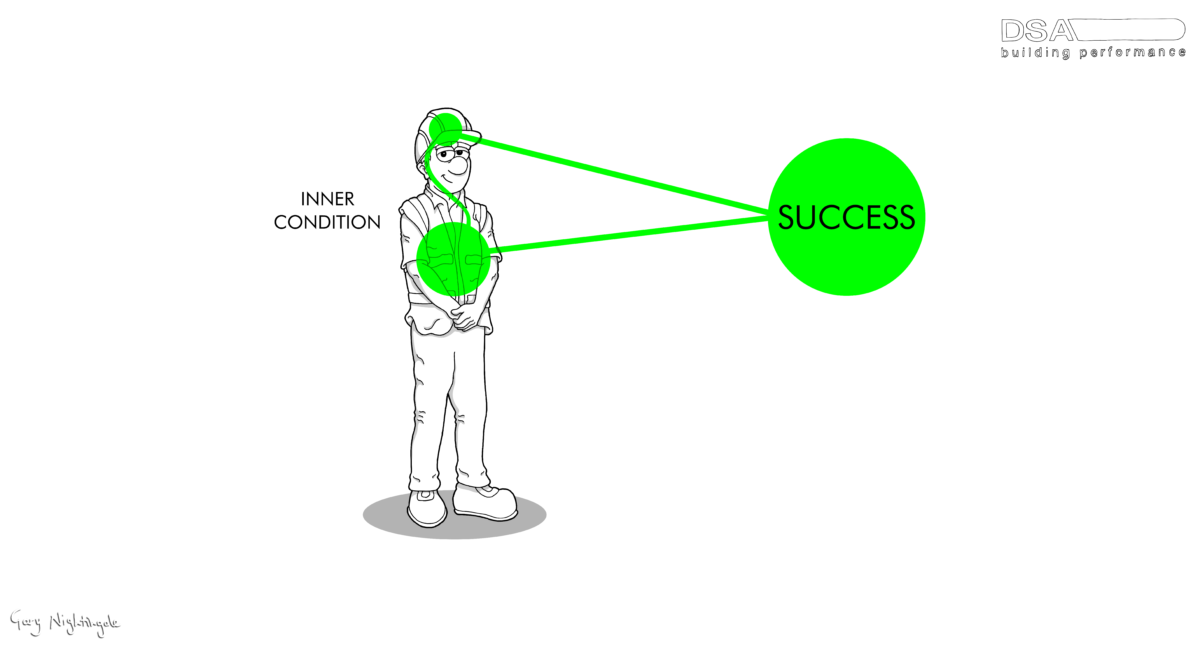Just check in, to see what condition your condition is in

Recently I read that the success of an intervention depends more on the “inner condition of the intervener” than the tools and strategies they use. The book was Presence, by Peter Senge et al.
That seems to make sense: how you are, your inner condition, informs what you do, and so informs your results.
What’s an intervention?
If you are a defender and tackle the ball off the other team’s forward, that’s an intervention.
In our industry, interventions can be when:
• A site engineer checks the alignment of formwork before and immediately after a concrete pour;
• The client’s QS strikes out a portion of the contractor’s monthly valuation pending receipt of contemporaneous records and proper justification;
• A manager promotes a member of staff because she has consistently performed at that higher level;
• The CEO passionately shares her vision, hoping to get people on board with the company’s new direction.
Permanently angry?
My first introduction to management interventions was very negative.
I was 17 when I got my first job as a site engineer, back in the day when being good at golf mattered more than engineering competence.
I lacked confidence and made many mistakes, which tended to mean quantities of concrete having to be jackhammered out.
My boss shouted at me all the time, which made matters worse and led to even more concrete having to be broken out.
After a while, he moved on; I stayed put and worked hard.
Reflecting back, I think my inner condition was ‘rabbit in the headlights’, and his was ‘permanently angry’.
That meant the co-created pattern between us was one of unsuccessful interventions.
What do you mean by inner condition?
In the most recent weekly Zoom session on boosting our confidence, a participant said our inner condition was the extent to which we trust ourselves. The Latin root word fid means “trust”. Con means “thoroughly”. And “confident” means thoroughly trusting yourself in your ability to do something.
So, if you thoroughly trust yourself to make that intervention, then there is a high chance of success. You would be calm, assured and capable, though not overconfident nor complacent.
And if you lack confidence in yourself as a manager, being impatient and shouting at your charges may be a shield to protect you from them finding that out.
Maybe I’m stretching it here. Maybe I deserved a good rollicking all those years ago for my incompetence, though I know it didn’t help the situation.
Talking it through with you is helping me understand
So now I think I understand the link between inner condition and success in what we do; talking it through nearly always works for me. Thanks for listening.
How do you protect your confidence in tricky times?
Confidence plays a huge role in our success, so how do you protect yours?
And if you are a manager or leader, how do you protect the confidence of your people? If their confidence is down, the chances are that concrete is being broken out, or that they may be “faking busy” and not really moving forward.
That’s bad news for your business.
These are tricky times. Confidence is being hit. Day after day, it seems the shocks keep coming.
How do you protect your confidence in tricky times?
I ask because confidence isn’t something you either have or don’t. You’re not born with a fixed amount, and that’s your lot.
Instead, it’s something you can protect and nurture, like a delicate garden.
I run a weekly Zoom session in which I share the technique I developed over many years to protect and nurture my confidence.
This I developed out of necessity, because I’m not a naturally confident person.
People are saying good things about these Zooms.
“Very good session,” said participant Gary Nightingale. “Dave connects well with the audience – natural and approachable as well as knowledgeable and experienced.”
Remember, how you are, your inner condition, informs what you do, and so informs your results.
Confidence is a big part of your inner condition.
Check out our confidence building sessions here.
I look forward to seeing you.
